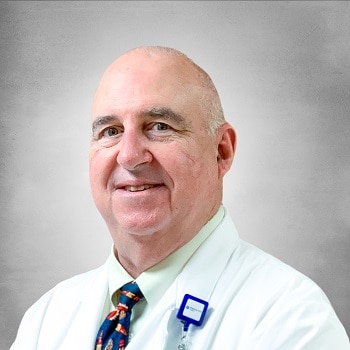Dr. Tony Alleman, a board-certified hyperbaric medicine provider, is now seeing patients at our renowned Wound Care Center.
Dr. Alleman uses the center’s state-of-the-art hyperbaric oxygen therapy chamber, which is the only facility of its kind in the state of Tennessee, to treat patients for a variety of conditions.
Hyperbaric oxygen is a great option for treating wounds, complications from radiation treatment, decompression sickness and a variety of other conditions. If you think you’re a good candidate for this treatment, ask your provider about a referral to our Wound Care Center.
Many of the patients Tony Alleman, MD sees are on the brink of losing hope. After struggling with stubborn wounds that haven’t responded to treatment, they’re frustrated and afraid.
Being able to provide them with a second chance led Dr. Alleman to join Regional One Health’s Wound Care Center, where a highly specialized team uses state-of-the-art care including hyperbaric oxygen therapy to give patients their best path to healing.
“Some of our patients have had wounds for a long time, and they’ve tried different medications and dressings without success,” he said. “By using the hyperbaric chamber, we can actually heal their wounds. That’s very satisfying.”
Dr. Alleman became interested in hyperbaric medicine while practicing occupational medicine in his native Louisiana. “Two years after I established my practice in Lafayette, a little thing called Hurricane Katrina hit,” Dr. Alleman said. “I knew a physician in New Orleans who treated Gulf Coast divers using hyperbaric oxygen therapy, and his practice had basically been closed by Katrina. I recruited him to Lafayette to join my practice.”

Tony Alleman, MD gives patients new hope through hyperbaric therapy. “It’s a wonderful treatment for a very diverse group of conditions. In many cases it offers a patient their best or only chance at recovery.”
Dr. Alleman decided to train in hyperbaric medicine so he could provide the service when his colleague retired. He completed a fellowship and earned board certification, and then continued practicing in Lafayette before joining Regional One Health.
“It was a great opportunity,” he said. “Regional One Health has a great chamber, and it seemed like a good fit for me.”
The chamber Dr. Alleman speaks of is the only multi-place hyperbaric oxygen chamber in the state of Tennessee, meaning it can provide incredibly effective treatment to 12 patients at once.
Hyperbaric oxygen therapy helps numerous conditions by increasing the amount of oxygen in the blood. Patients typically have a series of 20 daily treatments, each time spending 90 minutes in the chamber being exposed to high levels of pressurized oxygen. That helps the patient build new blood vessels, sparking the body’s own healing processes.
Dr. Alleman noted most wounds that fail to heal are caused by a lack of blood flow. If a wound isn’t getting oxygenated blood, it will continue to get worse.
“We do a test that checks the oxygen levels in the blood supply in the affected area, and if your level is below 40, you won’t heal,” he said. “We have patients come in at a 10. In the chamber, we can get the levels over 1,000, and the effect lasts even after they leave the chamber.”
It’s great for diabetic wounds, necrotizing infections, burns, wounds from traumatic injuries and more. The applications even go beyond wound care.
It’s the only treatment known to help decompression sickness, or the bends, which occurs when a diver surfaces too fast and bubbles of gas get trapped in their body. Hyperbaric oxygen therapy replaces nitrogen with oxygen to squeeze down the bubbles.
It also provides relief for patients undergoing radiation for cancer, and for certain conditions that cause a sudden loss of sight or hearing.

Regional One Health’s hyperbaric oxygen therapy chamber is the only multi-place chamber in Tennessee. Patients are treated for everything from wounds to complications from radiation to decompression sickness.
“It’s a wonderful treatment for a very diverse group of conditions,” Dr. Alleman said. “In many cases it offers a patient their best or only chance at recovery.”
While that makes the field rewarding, there are challenges as well, and the Wound Care Center addresses them with a holistic, compassionate approach. “Sometimes, patients have wounds that simply aren’t going to fully heal,” Dr. Alleman said. “We can help the patient maintain the best quality of life possible.”
Another challenge is convincing patients to make lifestyle changes that help with healing. For diabetics, controlling blood sugar is essential. For all patients, one of the worst things for wounds is smoking, so they always urge patients to quit.
To support those changes, the Wound Care Center treats the whole patient, not just the wound. Providers assess each patient’s physical, emotional and social factors and develop a personalized treatment plan with the patient’s unique needs in mind.
Dr. Alleman said he’s enjoying being part of the team and looks forward to taking a deeper dive into his new hometown once COVID-19 restrictions are relaxed.
“Once it’s possible to get out more, I’m excited to get out to play golf and check out the city’s restaurants. I love to cook, so I like to experience the culinary trends,” he said.